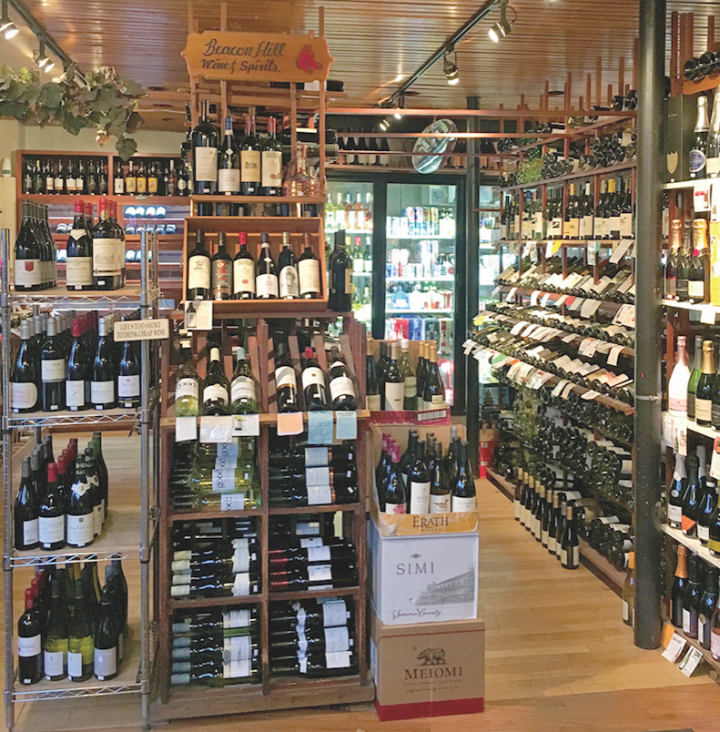
Oregon is experiencing an influx of craft beers from out of state, but that’s welcome news for retailers like Sean Campbell, owner of BeerMongers, a Portland-based bottle shop and beer bar. “We’re seeing a lot of new beers, mainly from southern California, and customers are asking for them,” Campbell says.
It’s not advertising that’s drawing such interest. Instead, customers are tapping into beer-finder lists on brewery websites and mobile apps. “When we take on new breweries, those listings drive initial customers to the store,” says Dan Chacon, beer department manager and buyer at Argonaut Wine & Liquor in Denver. The store offers 5,000 beer SKUs, including many craft offerings, generally retailing from $8.99 to $10.99 a six-pack. The brand-finder listings also draw beer lovers in search of special releases like Pliny the Elder, the coveted double IPA from California’s Russian River Brewing. Those same customers often buy additional brands at Argonaut, resulting in an even higher ring.
Joe Cerniglia, owner of Joe’s Discount Beverage in Springfield, Vermont, says the listings are useful in building a store’s reputation as a destination for sought-after brews. “They’re very good tools for that,” Cerniglia says of the beer-finder listings. Joe’s Discount Beverage stocks more than 100 beer SKUs, retailing between $9.99 and $16.99 a
six-pack.
Retailer listings on beer finder apps don’t require input from merchants, but it’s still useful to monitor them. Campbell regularly checks brewer websites to ensure that BeerMongers—which stocks 650 single bottles and cans—is listed as an account. If his store isn’t included, “I send the brewery an email just to let them know,” he says, adding, “Usually the correction is made right away.”
One challenge to beer-finder listings is that the information is based on distributor or brewer deliveries, and not on retail availability. “They don’t know our stock status,” notes Gene Beraldi, owner of Beacon Hill Wine & Spirits in Boston. The retailer offers up to 550 beer SKUs, from $8 a six-pack to $12 for a four-pack of the highly allocated Sip of Sunshine IPA from Lawson’s Finest Liquids. “They don’t know if the bottles meant for our store were broken on the truck or never showed up—the information isn’t always updated,” Beraldi explains. For allocated beers, a listing on a beer-finder app can be a double-edged sword. “Even if we’re listed as a retailer for a limited release, we only get so much,” Chacon notes. “Customers will come in and say they saw our listing on the brewery website, but they don’t realize that we might already be sold out.” Many suppliers thus encourage customers to call retailers to confirm whether a product is in stock.
Some 150 brewers rely on Vermont Information Processing’s Brand Finder technology to power their “where-to-find-us” lists. “By using data we collect from distributors across the country, we can determine every retailer that has received delivery,” explains marketing coordinator Larry Edelson. “Suppliers can put Brand Finder on their website to allow consumers to find their brands in the marketplace.” Brewers can choose to share delivery dates, from as recent as 1 day and up to 90 days, so consumers can see how recently a retailer has received a particular beer. Most opt for a 60- or 30-day range.
Recent enhancements to Brand Finder include a mobile responsive design that can integrate with suppliers’ Facebook pages. The company is working on an upgrade that should help provide real-time data on deliveries of beers that sell out quickly. That will allow marketers to set different thresholds on individual beers, so that consumers can easily spot when a delivery has just been made. “We’re allowing suppliers to get more granular with their Brand Finder settings, and not have a one-size-fits-all approach,” Edelson explains. That enhancement will surely be a welcome development for beer retailers and consumers alike.